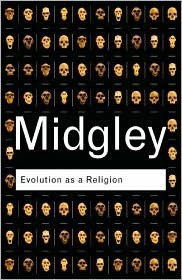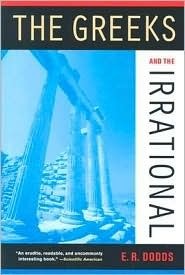Michael Flynn's Blog, page 77
February 19, 2010
The Curse of Hermes
.
Witchcraft and the Dark Ages
Although some folk apply the term "Dark Ages" to the entire medieval period, others apply it only to the early middle ages and refer to the High Middle Ages as the Early Renaissance. This is done in service to belief, of course. It is not how the historians generally view things. (In fact, those have been abandoning such propaganda labels in favor of century labels.) But in any case, one of the most cherished foundation myths of the Modern Ages is that of the ...
Witchcraft and the Dark Ages
Although some folk apply the term "Dark Ages" to the entire medieval period, others apply it only to the early middle ages and refer to the High Middle Ages as the Early Renaissance. This is done in service to belief, of course. It is not how the historians generally view things. (In fact, those have been abandoning such propaganda labels in favor of century labels.) But in any case, one of the most cherished foundation myths of the Modern Ages is that of the ...
Published on February 19, 2010 06:05
February 17, 2010
The Evolution of Evolution
The End of Darwinism Evolution
or
Evolutionism vs. Creationism
The surest way to gin up some traffic here is to put those terms into the post. Heheh.
Now, I cheated in the title, as will become apparent in a moment. Aristo-Thomists might already suspect the pun. If so, keep quiet until I'm done here.

On one side of the debate is a group of people with deeply held metaphysical beliefs who tell fables. On the other, a group of people who desire above all that their beliefs be recognized as ...
Published on February 17, 2010 01:22
February 16, 2010
Ragtime on the Harmonica
Behold!
The Finnish Harmonica Quartet
And the music is actually in rag time and follows the classic Joplin structure.
There is hope for the world, after all.
(h/t Mark Shea)
Published on February 16, 2010 15:17
February 15, 2010
Quote of the Day
When Selfish Gene author Richard Dawkins challenged physicist John Barrow on his formulation of the constants of nature at last summer’s Templeton-Cambridge Journalism Fellowship lectures, Barrow laughed and said, “You have a problem with these ideas, Richard, because you’re not really a scientist. You’re a biologist.”
www.templeton.org/milestones/milestones_2006-04.asp
Ouch.
www.templeton.org/milestones/milestones_2006-04.asp
Ouch.
Published on February 15, 2010 05:59
February 11, 2010
Disenchantment
How the Greeks Lost Their Groove (redux)
An Alert Reader writes to ask regarding the earlier post: m-francis.livejournal.com/133066.html
You say that according to the ancient Greeks, there was intention in nature. But didn't Greece's intellectuals disavow this worldview?
If Greek philosophers didn't believe that the pantheon of gods animated the world around them, what did they think caused motion in the universe, and how did Christianity "fix" their misconception?
 1. There was no single ancien...
1. There was no single ancien...
Published on February 11, 2010 19:00
February 7, 2010
A Blast from the Past
M&M the millennial couple!
Here is a photo of a photo, taken by one of my bros from one of Pere's photo albums. She is still every bit as beautiful as then. I, on the other hand....

Published on February 07, 2010 01:56
February 5, 2010
H.G.Wells Reviews Metropolis
Wells Did Not Like Metropolis
It gives in one eddying concentration almost every possible foolishness, cliché, platitude, and muddlement about mechanical progress and progress in general served up with a sauce of sentimentality that is all its own.

It is a German film and there have been some amazingly good German films, before they began to cultivate bad work under cover of a protective quota. And this film has been adapted to the Anglo-Saxon taste, and quite possibly it has suffered in the...
Published on February 05, 2010 22:32
Now for something completely different
Food for Thought
You've always wanted to hear a chef talk about how the "calcium reacts with sodium."
Published on February 05, 2010 20:23
Europe's Drinking Preferences
Wine, Beer, or Spirits?
This was on Strange Maps
My old history professor John Lukacs used to describe the border of the Roman Empire thusly: "On one side were Latins, and light, and wine. On the other side were Germans, and darkness, and beer." You can pretty much still see that border in modern preferences for wine and beer. In Roman times, of course, vineyards prospered much farther north ("The Roman Climatic Optimum") and again during the medieval Optimum than they do in today's chilly t...
Published on February 05, 2010 19:54
The Benefits of Youth
Published on February 05, 2010 18:54
Michael Flynn's Blog
- Michael Flynn's profile
- 237 followers
Michael Flynn isn't a Goodreads Author
(yet),
but they
do have a blog,
so here are some recent posts imported from
their feed.




